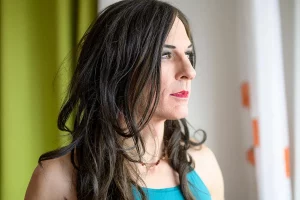THERE’S A NEW FORM OF SEXISM RUNNING RAMPANT IN THE LITERARY COMMUNITY.
Named for Donna Tartt’s 2013 novel, The Goldfinch, the Goldfinching phenomenon occurs when a novel written by a female author, which is beloved by female readers, rockets up the bestseller charts and onto prize shortlists. At that point, critics launch in, deriding the book with infantilizing and gendered terms, often pointing to it as a sign of decline in literary quality.
Like the Women’s Fiction genre, Goldfinching is, at its very core, a means of keeping women out of the literary annals. It decries women’s writing skills and reading tastes as juvenile and untempered, then calls out their influence as detrimental to the state of the community and its current climate. The literary world was fine, it says, until you broads showed up.
Lest you believe that these books are drivel, here are a few of Goldfinchers’ more prominent targets, along with quotes from their reviews.
The New Yorker‘s James Wood called The Goldfinch “a virtual baby,” saying, “its tone, language, and story belong to children’s literature.” When Vanity Fair asked about Tartt’s novel, Wood doubled-down on his insults: “I think that the rapture with which this novel has been received is further proof of the infantilization of our literary culture: a world in which adults go around reading Harry Potter.” All this, about a book that not only spent more than 40 weeks as a New York Times Best Seller, but also won the Pulitzer Prize for Fiction.
Next up, Hanya Yanagihara’s A Little Life, which won the Kirkus Prize and was shortlisted for both the Booker Prize and the National Book Award. Writing for The New York Review of Books, critic Daniel Mendelsohn noted that “the book bears a superficial resemblance to a certain kind of ‘woman’s novel’ of an earlier age.” What’s wrong with that? Perhaps the novel’s “deep and unadult sentimentality,” or its “guilty pleasures,” which read like “a teenaged rap session.” He calls the writing “atrocious, oscillating between the incoherently ungrammatical… and painfully strained attempts at ‘lyrical’ effects,” and goes on to “wonder why the… striking weakness of the prose has gone unremarked by critics and prize juries.”
Of course, Mendelsohn also gave an early Goldfinching to Alice Sebold’s The Lovely Bones. With the same something’s-rotten-in-the-state-of-Denmark tone he used to dismiss A Little Life as “woman’s novel,” he observed that “the pattern of the book’s remarkable rise to preeminence among novels published during the past year… suggests that it owes its success to word of mouth,” before throwing shade at Oprah’s Book Club.
It isn’t unethical for critics to give their honest opinions. We rely on their unbiased reviews. The problem with Goldfinching lies in its agents’ insistence on hurling gendered insults at targeted authors and their readers. The only purpose of these slurs is to discredit. Once a writer resorts to the ad hominem, he’s no longer critiquing the work, but engaging in a personal attack.
That’s what makes Goldfinching intolerable. It isn’t about disliking a popular novel, or critiquing its finer points. Instead, Goldfinching is a concentrated attack on women’s entrance into the contemporary literary canon. It’s desperate, and it leaves no stone uncast.
Goldfinching critics take issue with the very vehicles their targets use to attain popularity, attempting to take them out at the knees. You don’t deserve this, the Goldfinchers say, because you didn’t come to it in the right way. What “the right way” is goes unmentioned, because there is no right way. “The right way” is always some nonspecific avenue the novel did not take.
Next, critics will protest that “the book’s writing [is] sloppy or sentimental.” Emotion is unrefined, un-literary, and — worst of all — feminine. They’ll liken the target to cheap women’s entertainment — cheesy movies and bodice-rippers — and deride its more feminine elements as part of its problem. So, when Bret Easton Ellis names designer after season after designer in American Psycho, he’s written literature; when Yanagihara talks about food, it’s “an oppressive amount of culinary detail.”
Finally, Goldfinching must insult books, and their writers and readers, as ignorant, undeveloped, and childish. This is what leads Mendelsohn to wonder if Yanagihara “knows her own strengths [as a writer],” and Lorin Stein to tell Vanity Fair that readers “tell themselves they like [The Goldfinch], but deep down [are] profoundly bored.”
Goldfinching exists only to correct a certain problem: women’s presence in literature. Women as writers, readers, and literary tastemakers — even when backed by honored judges and critics — must be discredited in order to protect the boy’s club. As Weiner observes, “To write like a man is to write well. To write like a woman — or, even worse, to be popular among that tribe of weepy, daytime-TV-watching, Oprah-following, quote-unquote ‘readers’ — means you’ve barely written at all and that you certainly haven’t written literature.”

















